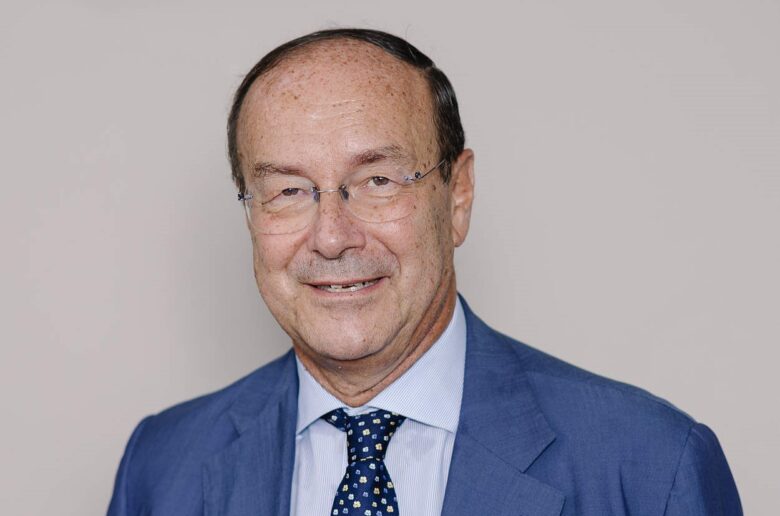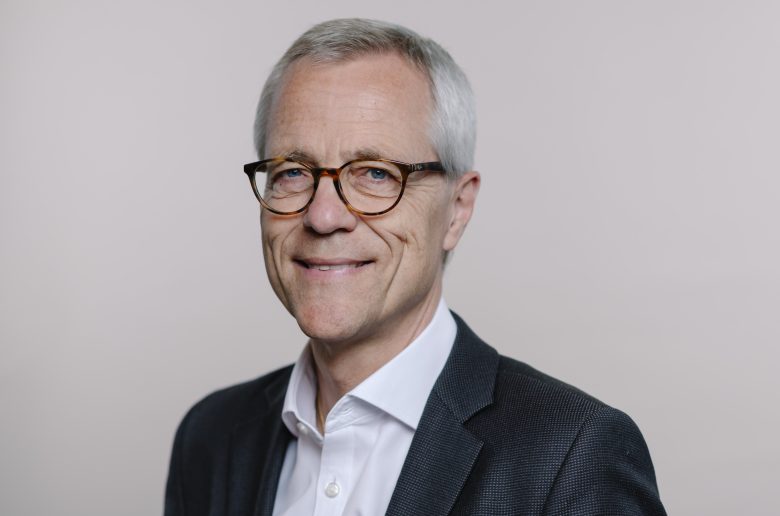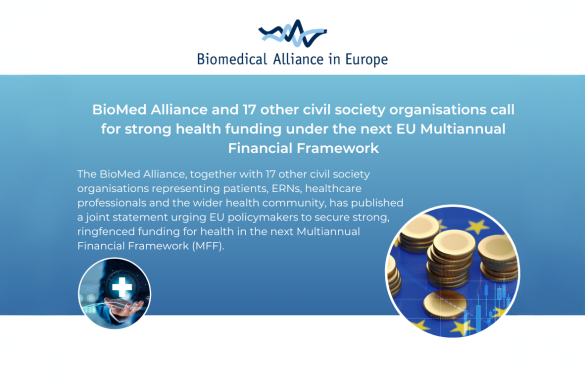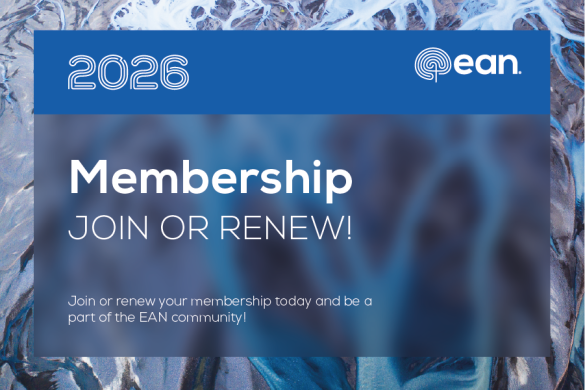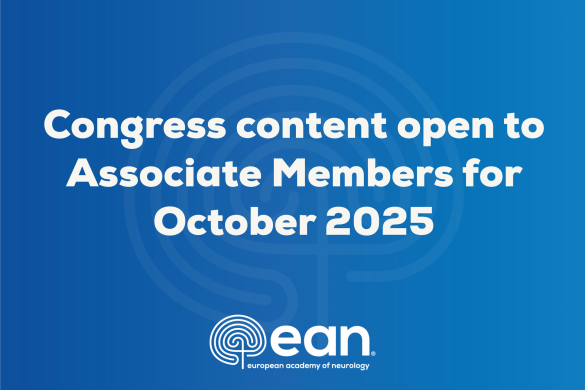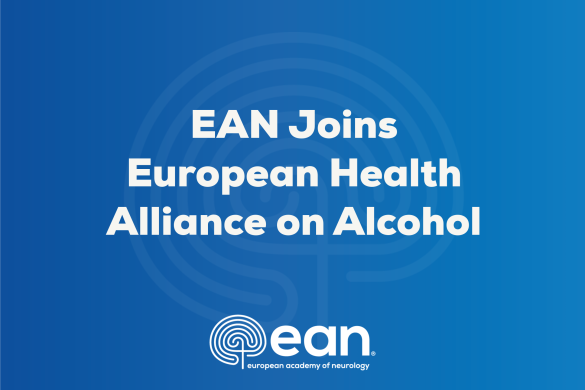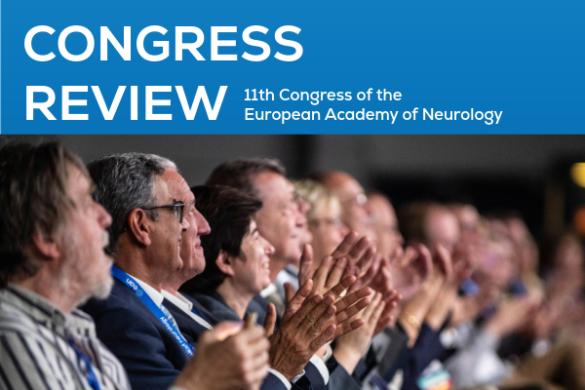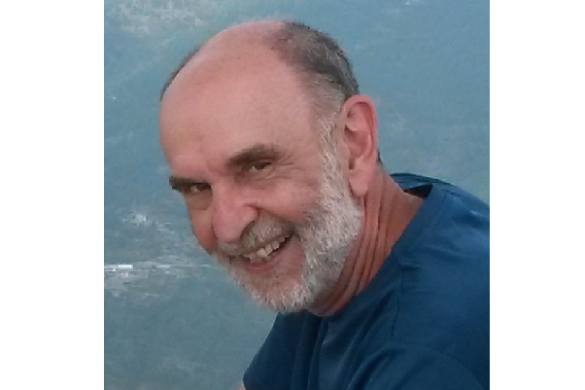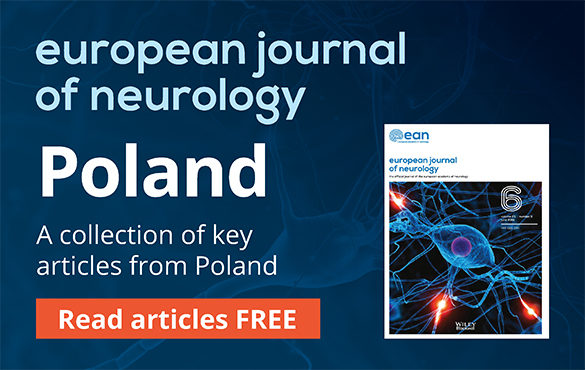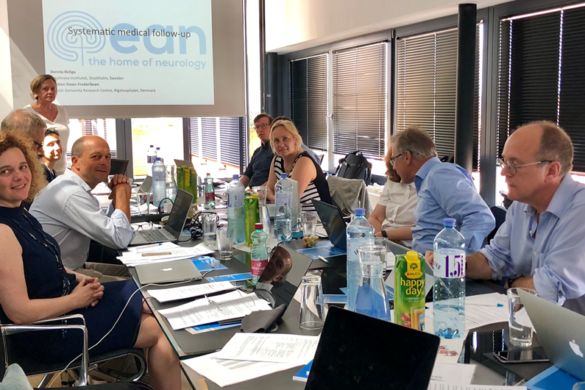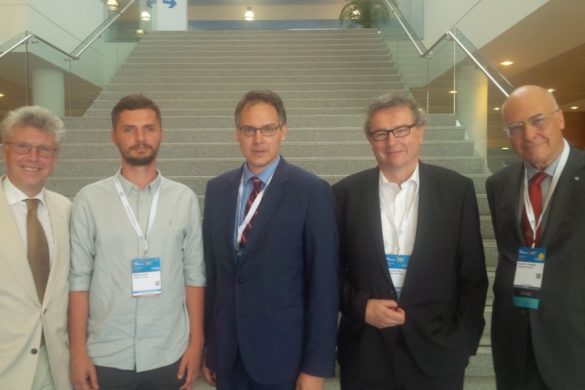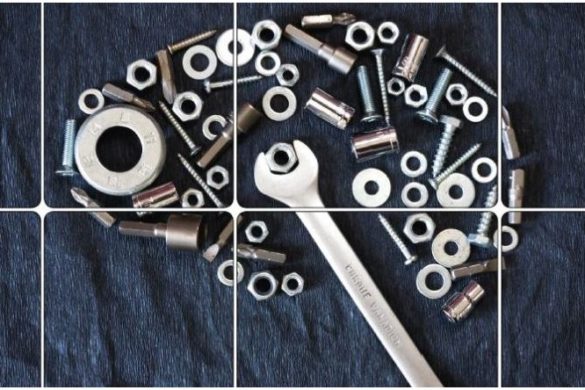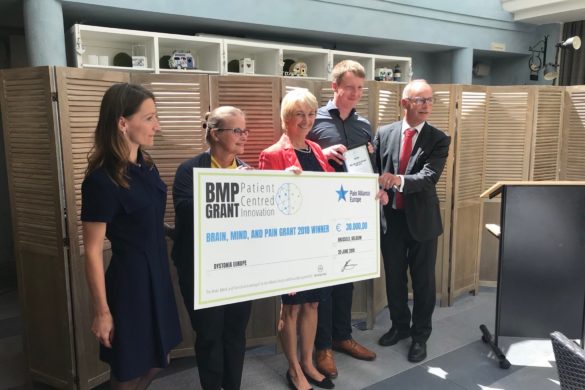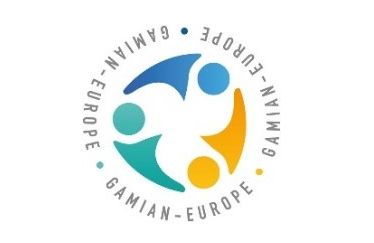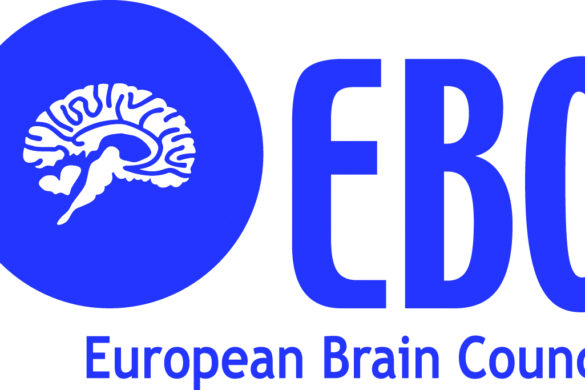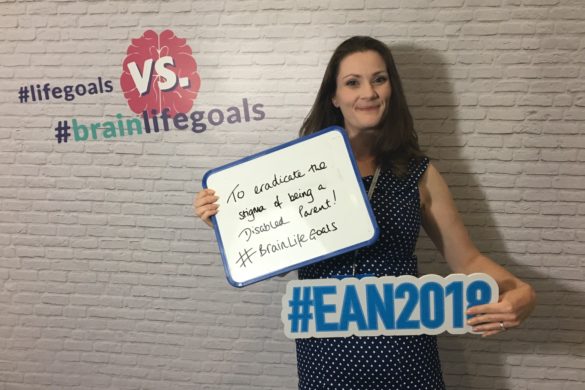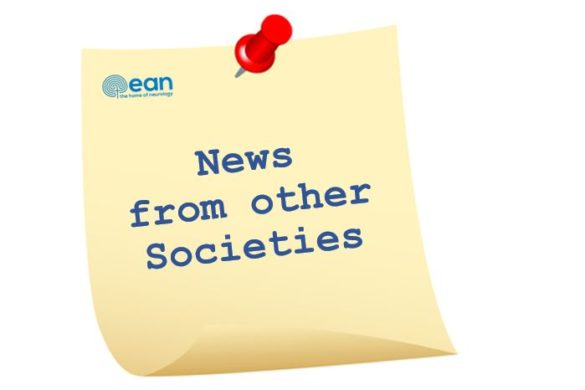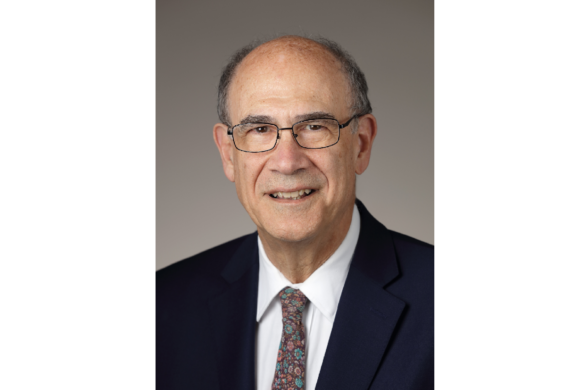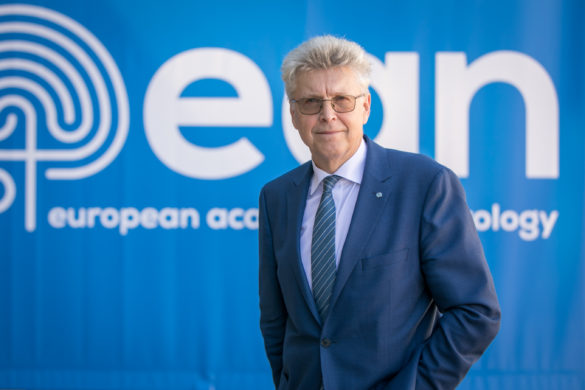The latest CME article July 2018: “Assessment of bulbar function in amyotrophic lateral sclerosis: validation of a self-report scale” is online!
Please log-in and browse to the LEARN section on the EAN Website and answer the questions!
All e-learning activities… Continue Reading
Biomedical Alliance in Europe Calls for Strong Health Funding in Next EC Multiannual Financial Framework
November 6, 2025
BioMed Alliance and 17 other civil society organisations call on policy makers to ensure that the next multiannual EU budget will be fit-for-purpose to address current and future health threats.
Latest Posts
-
-
EAN NewsEAN NewsResearchTop Articles
European Association of Nuclear Medicine and European Academy of Neurology recommendations for the use of brain 18F-fluorodeoxyglucose positron emission tomography in neurodegenerative cognitive impairment and dementia: Delphi consensus
July 10, 2018Despite its large use, recommendations for the use of brain F-18 FDG-PET in clinical practice were still lacking. The European Academy of Neurology (EAN) and the European Association of Nuclear Medicine (EANM) promoted a concerted action with 7 specialists from the two Societies and a group of facilitators in order to make the point on this issue. Extensive literature review and analysis of available data led, together with expert opinion (Delphi consensus), to deliver these recommendations that cover practically all the main brain neurodegenerative conditions causing cognitive impairment. -
Please find below articles from Polish authors and co-authors that were published in the European Journal of Neurology
-
EAN NewsEAN NewsTop Articles
EAN Task Force on a new EAN Guideline entitled ”Medical management issues in dementia”
July 4, 2018The Guideline will address important areas of dementia management where the medical doctor plays a pivotal role, which includes treatment of epilepsy in dementia, pain in dementia, treatment with antipsychotics in dementia, vascular risk factors in dementia and systematic medical follow-up in dementia. -
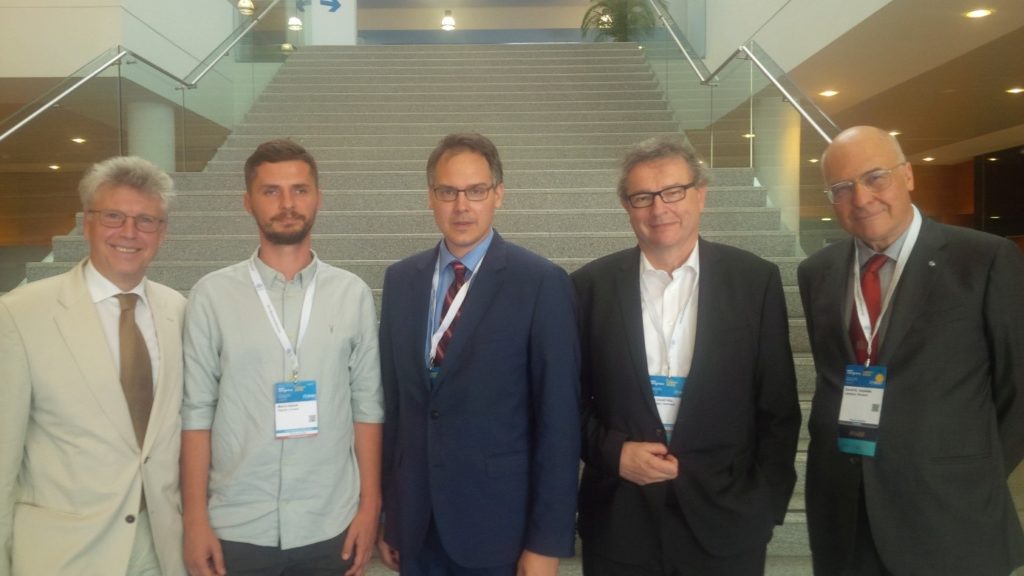 Prof. F. Fazekas, President of the EAN and Prof. W. Struhal President of EFAS are pleased to announce that:
EAN has joined with EFAS to promote Autonomic Nervous System (ANS) disorders in Europe and advance optimal care and management for… Continue Reading
Prof. F. Fazekas, President of the EAN and Prof. W. Struhal President of EFAS are pleased to announce that:
EAN has joined with EFAS to promote Autonomic Nervous System (ANS) disorders in Europe and advance optimal care and management for… Continue Reading -
The purpose I defined for my internship was to learn pathophysiology, clinical presentation, and treatment of a large spectrum of neuroimmunological diseases of the central and peripheral nervous system.
-
EFNAOther News
News from EFNA: MyBrainNet by Dystonia Europe among winners of the Brain, Mind and Pain Grant
July 1, 2018EFNA member association Dystonia Europe was among the winners of the Brain, Mind, and Pain Patient-Centred Innovation Grant, announced on Wednesday in Brussels. -
Other News
GAMIAN Europe – Mental health, patient empowerment and self-management of care and treatment
July 1, 2018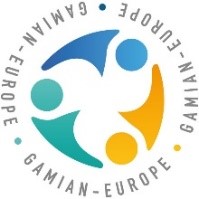 GAMIAN-Europe, a patient-driven pan-European organization, represents the interests
of persons affected by mental illness and advocates their right
www.gamian.eu
GAMIAN Europe: European Parliament Interest Group on Mental Health, Well-being and Brain Disorders
European Parliament, Brussels, Belgium, 16 May 2018… Continue Reading
GAMIAN-Europe, a patient-driven pan-European organization, represents the interests
of persons affected by mental illness and advocates their right
www.gamian.eu
GAMIAN Europe: European Parliament Interest Group on Mental Health, Well-being and Brain Disorders
European Parliament, Brussels, Belgium, 16 May 2018… Continue Reading -
On the occasion of the ninth European Conference on Rare Diseases & Orphan Products (ECRD) held in Vienna on 10th-12th May 2018, Prof. Marc Dooms, main author of the Declaration on Good Off-Label Use Practices (GOLUP), presented the 5 criteria for using medicines off-label that are laid down in the declaration. Many participants showed an interest in the declaration as well as various initiatives organized within the framework of the GOLUP-campaign.
-
WFN website: www.wfneurology.org Adress for the WBD: wbd2018@wfneurology.org.
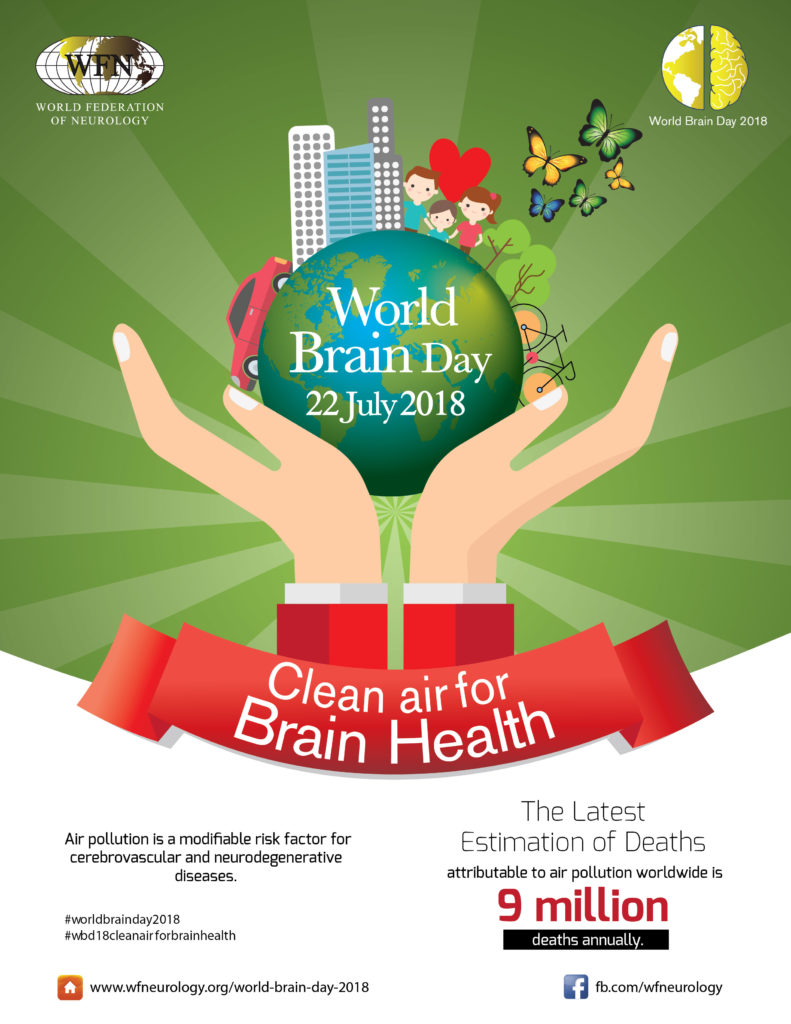 Clean air for brain health
Mohammad Wasay MD, FRCP, FAAN (Aga Khan University, Karachi, Pakistan)
Clean air for brain health
Mohammad Wasay MD, FRCP, FAAN (Aga Khan University, Karachi, Pakistan)
Wolfgang Grisold MD (Secretary General, WFN, Vienna, Austria) A link between environment and health has long been… Continue Reading -
Last week EFNA attended the 4th European Academy of Neurology (EAN) Congress in Lisbon, along with more than 6700 neurologists! Once again, EFNA took this opportunity to bring together our members for our annual General Assembly. On Day 1 we… Continue Reading
-
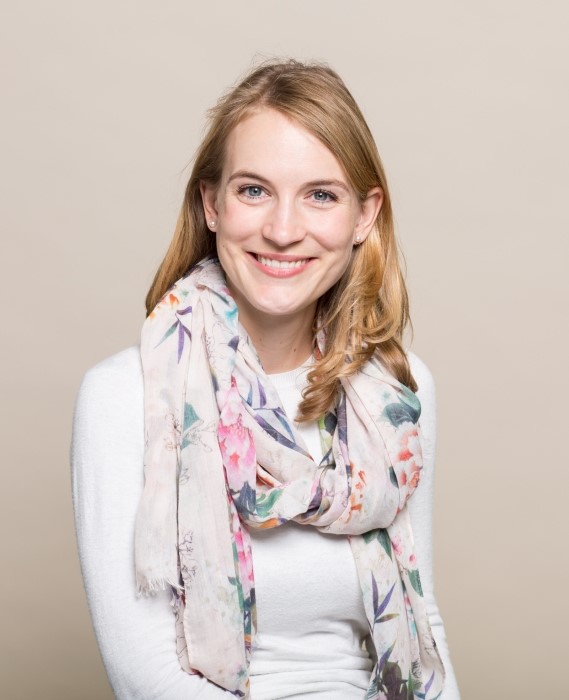 by Anna Sauerbier
Digital medicine and treatment development for brain disorders
AZ, Lilly pull plug on Alzheimer’s disease trials
France builds first Alzheimer’s ‘village’ in pioneering experiment
Horizon Europe budget not big… Continue Reading
by Anna Sauerbier
Digital medicine and treatment development for brain disorders
AZ, Lilly pull plug on Alzheimer’s disease trials
France builds first Alzheimer’s ‘village’ in pioneering experiment
Horizon Europe budget not big… Continue Reading -
Prof. Elena Moro (EM): Dear Prof. Hallett, it is a great honor for me, as movement disorders specialist, to ask you few questions on behalf of the EAN members and for all EAN pages readers. In light of your Honorary Membership to the EAN, can you tell us what did make you choose “neurology” as the specialty to pursue? Prof. Mark Hallett (MH): I have been interested in the brain since I took a psychology course in high school. I pursued neuroscience studies in college, but only decided to go into medicine about half way through college.
-
Dear EAN Members, dear Colleagues, The 4th annual Congress of the European Academy of Neurology just held in Lisbon on June 16th - 19th was a spectacular event. More than 6,700 participants from 104 countries attended the meeting which covered the whole range of neurologic disorders in various formats, and offered altogether 42 scientific and 48 educational sessions. Besides several teaching courses and educational activities, the congress also comprised of 20 case-based workshops and interactive sessions, 7 hands-on courses, and 3 career development sessions.
-
Paper of the MonthEAN NewsFeatured Slider
Paper of the month: Waking up with a stroke: should we do thrombolysis?
July 1, 2018For July 2018, we have selected: Thomalla G, Simonsen CZ, Boutitie G, et al., for the WAKE-UP Investigators. MRI-guided thrombolysis for stroke with unknown time of onset. NEJM May 16, 2018. doi:10.1056/NEJMoa1804355. Thrombolysis is currently performed in patients with acute ischemic stroke within a window of 4.5 hours since the symptoms’ onset. In about one third of the patients, the exact time of stroke onset is unknown, like in patients who wake up from sleeping.

